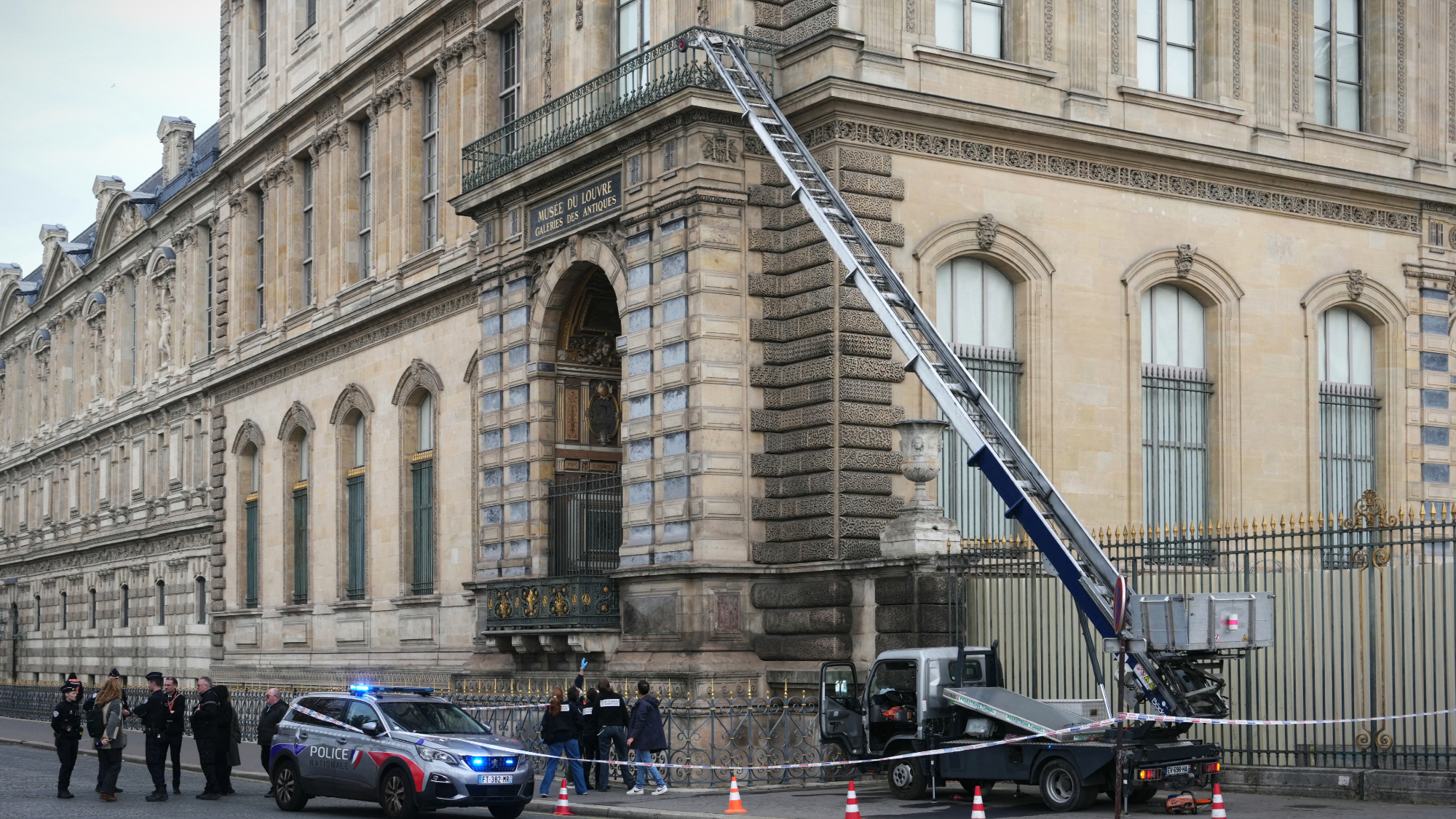Why Russia might not stop with Crimea
CHUNG SUNG-JUN/Getty Images


A free daily email with the biggest news stories of the day – and the best features from TheWeek.com
You are now subscribed
Your newsletter sign-up was successful
It's anyone's guess how Russia will act in Ukraine over the coming days and weeks. The New Yorker's David Reminick, who spent years reporting out of Russia, and who recently wrote a fascinating analysis of Putin's worldview, argues that the situation could get much worse before it gets better. To justify the invasion of Crimea, the Russian parliament "repeatedly echoed the need to protect ethnic Russians in Ukraine — a theme consonant with the Kremlin's rhetoric about Russians everywhere, including the Baltic States," he writes. "But there was, of course, not one word about the sovereignty of Ukraine, which has been independent since the fall of the Soviet Union, in December, 1991."
If this is the logic of the Russian invasion, the military incursion is unlikely to stop in Crimea: nearly all of eastern Ukraine is Russian-speaking. Russia defines its interests far beyond its Black Sea fleet and the Crimean peninsula […]
It's also worth noting that, in 1968, Moscow was reacting to the "threat" of the Prague Spring and to ideological liberalization in Eastern Europe; in 1979, the Kremlin leadership was reacting to the upheavals in Kabul. The rationale now is far flimsier, even in Moscow's own terms. The people of the Crimean peninsula were hardly under threat by "fascist gangs" from Kiev. In the east, cities like Donetsk and Kharkov had also been quiet, though that may already be changing. That's the advantage of Putin's state-controlled television and his pocket legislature; you can create any reality and pass any edict. [The New Yorker]
So far, the U.S. and other Western powers have condemned the Russian incursion without calling for forceful consequences beyond sanctions. That could change if Russia indeed decides to solidify its grasp on Crimea, or push on into Ukraine.
A free daily email with the biggest news stories of the day – and the best features from TheWeek.com
The Week
Escape your echo chamber. Get the facts behind the news, plus analysis from multiple perspectives.

Sign up for The Week's Free Newsletters
From our morning news briefing to a weekly Good News Newsletter, get the best of The Week delivered directly to your inbox.
From our morning news briefing to a weekly Good News Newsletter, get the best of The Week delivered directly to your inbox.
Jon Terbush is an associate editor at TheWeek.com covering politics, sports, and other things he finds interesting. He has previously written for Talking Points Memo, Raw Story, and Business Insider.
-
 How the FCC’s ‘equal time’ rule works
How the FCC’s ‘equal time’ rule worksIn the Spotlight The law is at the heart of the Colbert-CBS conflict
-
 What is the endgame in the DHS shutdown?
What is the endgame in the DHS shutdown?Today’s Big Question Democrats want to rein in ICE’s immigration crackdown
-
 ‘Poor time management isn’t just an inconvenience’
‘Poor time management isn’t just an inconvenience’Instant Opinion Opinion, comment and editorials of the day
-
 Maxwell pleads 5th, offers Epstein answers for pardon
Maxwell pleads 5th, offers Epstein answers for pardonSpeed Read She offered to talk only if she first received a pardon from President Donald Trump
-
 Hong Kong jails democracy advocate Jimmy Lai
Hong Kong jails democracy advocate Jimmy LaiSpeed Read The former media tycoon was sentenced to 20 years in prison
-
 Ex-Illinois deputy gets 20 years for Massey murder
Ex-Illinois deputy gets 20 years for Massey murderSpeed Read Sean Grayson was sentenced for the 2024 killing of Sonya Massey
-
 Sole suspect in Brown, MIT shootings found dead
Sole suspect in Brown, MIT shootings found deadSpeed Read The mass shooting suspect, a former Brown grad student, died of self-inflicted gunshot wounds
-
 France makes first arrests in Louvre jewels heist
France makes first arrests in Louvre jewels heistSpeed Read Two suspects were arrested in connection with the daytime theft of royal jewels from the museum
-
 Trump pardons crypto titan who enriched family
Trump pardons crypto titan who enriched familySpeed Read Binance founder Changpeng Zhao pleaded guilty in 2023 to enabling money laundering while CEO of the cryptocurrency exchange
-
 Thieves nab French crown jewels from Louvre
Thieves nab French crown jewels from LouvreSpeed Read A gang of thieves stole 19th century royal jewels from the Paris museum’s Galerie d’Apollon
-
 Arsonist who attacked Shapiro gets 25-50 years
Arsonist who attacked Shapiro gets 25-50 yearsSpeed Read Cody Balmer broke into the Pennsylvania governor’s mansion and tried to burn it down
